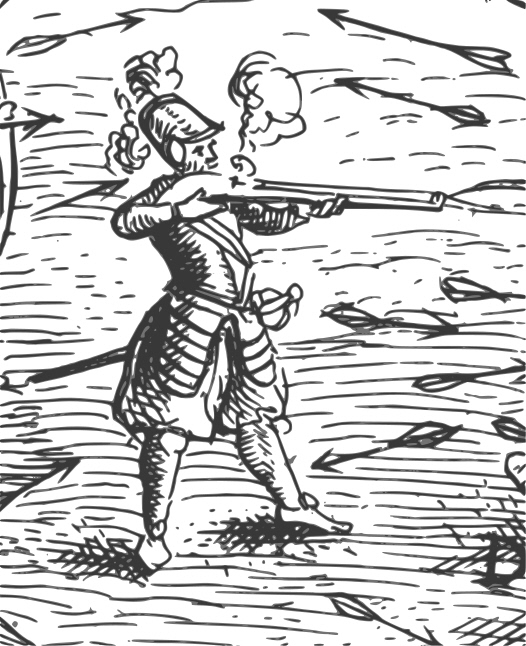At once a biography of Samuel Champlain (1574-1635) and a history of the founding of colonial New France, Fischer's Champlain's Dream is also in part at least a work in Christian ethics, which points to the difference the application of Christian values can make in the real world. Champlain's Dream is a well written, carefully researched, and timely work devoted to an important and fascinating slice of the past, all of the things we expect of Fisher.
As Fischer portrays him, Champlain was a man who was born into violent times and was a soldier, but he became something much more than just a warrior. He was born into a France that was rent with religious divisions between Catholics and Protestant and himself converted from Protestantism to Catholicism but learned to transcend these divisions. He lived in a time when politics was as complicated and brutal as ever, and he played the political game when necessary but only in pursuit of his dream for a French colony in North America. Finally, what Champlain found in the great St. Lawrence River valley was a large set of Indian tribes engaged in constant warfare with each other and weary of that warfare; and he managed to bring a certain degree of peace to the warring tribes for a period of time in pursuit of his dream of a peaceful, prosperous New France
 |
| A self-portrait of Champlain |
It is clear that none of this came easily for Champlain. He made powerful political enemies and always had to contend with conflicting financial interests that sought to exploit French North America at the expense of his vision. In New France, he had to contend with the Iroquois, who never made peace with the French, and he was forced to attack them in order to deter their attacks on the colony and on its allied tribes. On the home front, he had a complicated relationship with his wife, Helene, that never produced any children and ended up with her entering a convent. At one time, New France was seized by Scottish merchants based in England and Champlain was made a prisoner until he was finally returned to France. Through it all, however, he persevered in his pursuit of his vision of a peaceful and prosperous New France grounded on Christian principles. He, for example, promoted exchanges of young people between the French and the Indians so that both sides gained a better appreciation for the cultures of the other. Many of the French young men because interpreters for the French, not just of Indian languages but also of their ways of life.
In his concluding chapter, Fischer writes,
Many stories have been told about first encounters between American Indians and Europeans. Few of them are about harmony and peace. The more one reads of these accounts, the more one learns that something extraordinary happened in New France during the early seventeenth century—something different from what took place in new Spain, New England, and New Netherlands. Scholars of many nations agree that the founders of New France were able to maintain good relations with American Indians more effectively than any other colonizing power. (p. 527)Fischer credits those good relations primarily to Samuel Champlain who he characterizes as a man of deep religious faith as well as a member of a group of French humanists who originally formed around King Henri IV. Champlain himself was close to the king.
One could well argue that New England was just as much a product of the application of Christian beliefs and values as New France, but with an outcome that was very different. The Indians were pushed into open war, treated with disdain, and eventually the "Indian problem" was solved by their near extermination. While Fischer points out that there were compassionate English settlers and insensitive settlers among the French, one of his key points is that the differences between the practice of Christianity in New France under Champlain and the practice of the faith in other colonies such as New England led to very different outcomes. The outcome in New France was more Christ-like. It was less dualistic and less brutal. It was less ideological and less destructive. It was more dialogical and more just and peaceable.
Fischer did not write Champlain's Dream as a work of theological reflection, but much of what he wrote provokes, almost demands that reflection. But whether or not it is viewed theologically, Fischer's Champlain's Dream is a well-crafted historiographical work. It is a comprehensive study that includes a lengthy literature survey, a set of sixteen appendices on a range of issues and subjects related to Champlain's life and times, and an extensive bibliography. The book is richly illustrated and contains a good set of maps. All-in-all, this is an excellent book generally and one that is well worth consideration by students of Christian theology and ethics.
